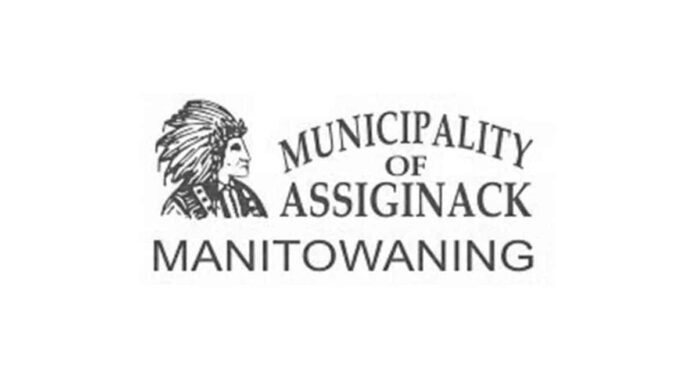WIIKWEMKOONG—The Wiikwemkoong arena hosted a two-day Energy Symposium May 24-25 that saw expert presenters from the community, Hydro One and a host of communities across the region, various consultants and green energy companies provide informative and detailed presentations on all aspects of energy planning and impacts.
“We are informing the community about where we are at with the energy plan, the projects completed, what they said they were going to do with the energy plan in previous years,” said Energy Community Champion Sioux Manitowabi “Get the community fully engaged on how we have to plan for climate change, how we have to modernize. How we have to push to use our sovereignty and how we use that sovereignty with our projects and infrastructure to make life more comfortable for members of the community.”
“We are Anishinaabek people, we have utilized the land, the land is becoming vulnerable, and we need to plan where we put our infrastructure,” he said. “There are things we need to start looking at. These are just the first steps of opening discussions. We need to let elders know we are using traditional knowledge as part of those discussions.”
Mr. Manitowabi pointed out that Wiikwemkoong is at the forefront of biomass utilization and solar microgrids are already well-installed in the community. The symposium also allowed for learning about the best practices taking place in other communities across the North. “We are looking to work with Indigenous groups and non-Indigenous groups.”
Emeritus professor of Natural Sciences at Laurentian University Dr. David Pearson delivered a presentation on the insight he has gained from visiting numerous communities across the North, providing visual examples of the impacts that climate change is already having on those communities and the vital importance of taking steps now to help deal with those impacts into the future.
Unlike some climate scientists and activists who eschew discussion of planning for the inevitable impacts of climate change on the grounds that such discussions will take away from actions to combat those changes, Dr. Pearson notes that those changes are already upon us and the danger presented by flooding and other consequences of rising temperatures, especially in remote Northern communities are dire.
Some of those impacts are not intuitive. Dr. Pearson gave the example of the water from melting snow in communities that do not typically have ditches to direct water away from homes and buildings settling in crawl spaces where it encourages mould and other health hazards. Communication is the first step in planning to deal with the unfamiliar issues engendered by climate change impacts, he notes.
“It’s enormously important that people talk to each other, from different communities and in this case the satellite communities within the Wiikwemkoong Unceded Territory,” said Dr. Pearson.
Across the two days attendees at the conference heard from Community Energy Champions Gina Simon (Michipicoten), Alyssa Warren (Georgina Island) and Ryan McGregor (Whitefish River); a solar energy boat project from Mitch Souliere; Wiikwemkoong Housing Developments, Future Planning and Infrastructure from Housing Manager Russel Pitawanakwat; Public Works Infrastructure, Program Overview and Landfill Improvements from Public Works Manager Norm Assinewai; Community infrastructure and Energy from William Assinewai, Community Energy Plan from the CIPS Group; Micro Green Energy from Lewis Redford; VORTEX—EV Technology and Battery Backup Systems from a company representative; and Agriculture in Wiikwemkoong from Anette Peltier.
Attendee Tabitha Peltier was the happy winner of a solar powered cell phone charger and said that she found the symposium extremely enlightening and well-worth the effort to attend even without her prize.
All of the presentations will be available for access online thanks to the efforts of Ashley Manitowabi and his company Galloping Horse Productions by searching @gallopinghorse3380 on YouTube.





